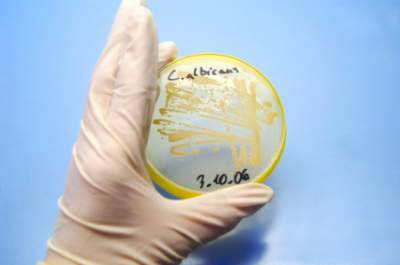
Candida, otherwise known as thrush, is a type of fungal infection. There are different types of Candida, the most common being Candida Albicans. Candida albicans (thrush) exists in all of us, and can occur in the mucous membranes of the mouth, nails of the hands and feet, vagina and throughout the gastrointestinal tract. Whilst thrush is generally non-life-threatening, it can cause many disruptions to the body’s ability to function at its best. One of the biggest side effects of thrush is fatigue and headaches!
Candida can occur at any age, but generally, affects females during reproductive years and infants.
Where does thrush occur?
Thrush can occur in the vagina, mouth/tongue, nails and skin.
What are the signs and symptoms of vaginal thrush?
Vaginal itching, redness and pain with a cottage cheese type discharge are the most commonly reported symptoms. There is generally no odour associated with vaginal thrush. However, bacterial vaginosis is commonly mistaken for thrush as it can have very similar if not the same symptoms. However, with bacterial vaginosis, there is a malodourous discharge that is commonly referred to as a fishy smell. Thrush may also occur without any signs or symptoms.
What are the signs and symptoms of intestinal thrush?
Unlike vaginal thrush, gastrointestinal (GI) thrush is a little harder to identify as the symptoms can be part of a multitude of other health conditions. Visually, thrush of the GI includes a milky white coat (or patches) on the tongue or the inside of your mouth or both; or appears as a nail or skin infection. Other symptoms include but not limited to, bloating, fatigue, headaches, fogginess (especially in the mornings), waking unrefreshed, urinary tract infections, anal itching, PMS, general moodiness, weight loss or gain and anxiety.
What are the causes of thrush?
We all have Candida in our body that is controlled by the friendly bacteria in our body. The problem with thrush is when our immune system is unable to keep it under control.
Thrush occurs when the microflora is unbalanced, which often happens as a result of antibiotic therapy. Antibiotics are designed to kill bacterial infections and unfortunately, they can eradicate all of the bacteria, even the good ones! It’s generally a good rule of thumb to use certain strains of probiotics after antibiotic therapy to help balance the microflora again.
Our diets play a huge role in the health of our bodies. Refined sugars (such as white or raw sugar) and starches (such as carbohydrates found in bread and pastries), alcohol, fermented foods and sweets alter the microflora leading to thrush. Low fibre can cause constipation, which alkalises the body, making it the perfect environment for thrush to flourish. So drinking plenty of filtered water and exercising will also help reduce constipation and avoid recurrent thrush!
Tight synthetic clothing can also cause or at least contribute to thrush. Wearing natural fibres and cotton underwear allows your body to breathe and can reduce the severity of thrush.
Hormonal changes such as pregnancy or menstrual irregularities can also contribute to thrush.
How is thrush treated?
Medically, thrush is can be treated with anti-fungal creams that are applied locally to the area.
There are other options that can reduce the symptoms and eradicate the fungus. These include liquid herbs that can taste unpleasant and nutritional supplements to support your immune system. It’s the properties of these herbs that are required to contain the infection and eliminate it out of your body. The taste of these herbs are short-lived and are not harmful when prescribed appropriately by a professional. Treatment usually lasts around two weeks, but can be longer depending on the severity of thrush.
Pessaries are also helpful as they can provide instant relief but also help to eradicate the infection more locally.
Is there anything at home I can use to treat thrush?
Yes, there are several ways to treat thrush at home.
- Tea tree oil is a great remedy to keep in the bathroom! Diluting four drops in a glass of warm water and swishing it around your mouth for a minute – then spit it out. Do not swallow!
- Avoid douching the vagina as this can wash away the natural acidic environment of the vagina and vulval region
- Avoid alcohol – this is high in sugars and can destroy good bacteria thereby feeding thrush
- Eat natural plain yoghurts, cottage cheese and fibre rich foods as these contain friendly bacteria and can help balance the microflora
- Relax! A stressful environment is a huge cause of thrush. Stress dampens the immune system and increases our blood sugar levels thus feeding thrush
Whilst thrush is generally non-life-threatening it can be a result of food intolerance or thyroid problems. So it’s best to be checked.
Is thrush an STI or STD?
Thrush is not considered to be a sexually transmitted infection, it’s caused by an overgrowth of yeast. However, sexual intercourse can irritate the vagina and cause cross-contamination.
Book Appointment Online or call us on (03) 9388 0080

